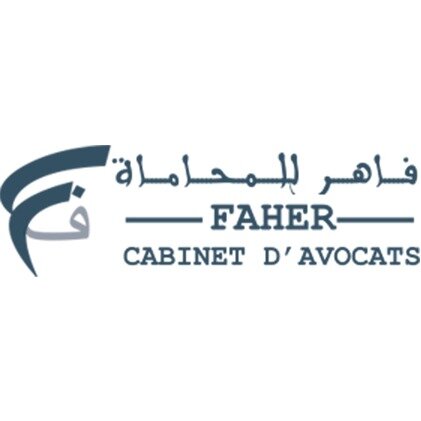Best Child Custody Lawyers in Morocco
Share your needs with us, get contacted by law firms.
Free. Takes 2 min.
Free Guide to Hiring a Family Lawyer
Or refine your search by selecting a city:
List of the best lawyers in Morocco
About Child Custody Law in Morocco
Child custody laws in Morocco are primarily governed by the Moudawana, or the Moroccan Family Code, which was significantly reformed in 2004. The family code emphasizes the rights and welfare of children above all. In Morocco, child custody issues often arise during divorce proceedings, where the courts aim to ensure the child's best interests are protected. It is common for custody to be awarded to the mother, especially for younger children, unless there are compelling reasons to decide otherwise. Both parents are encouraged to cooperate in matters related to their children's welfare, including decisions about education, health, and religious upbringing.
Why You May Need a Lawyer
Several situations might necessitate seeking legal advice regarding child custody:
- **Divorce or Separation:** Legal representation is beneficial to navigate complex custody agreements or disputes that arise during divorce or separation processes.
- **Modification of Custody Arrangements:** If there is a need to alter existing custody arrangements due to changes in circumstances, a lawyer can help present a compelling case for modification.
- **International Custody Issues:** In cases involving relocation or custody disputes where one parent resides outside Morocco, legal expertise is crucial to address cross-border custody laws.
- **Enforcement of Custody Orders:** If one parent is not complying with existing custody agreements, a lawyer can assist in enforcing court orders.
- **Protection Orders:** In situations involving domestic violence or child welfare concerns, legal assistance ensures protective measures are in place for the child's safety.
Local Laws Overview
Here are some key aspects of local laws in Morocco related to child custody:
- **Best Interests of the Child:** The Moudawana prioritizes the child's welfare in custody decisions, evaluating factors like the child's age, health, and emotional needs.
- **Mother's Custody Rights:** Generally, mothers are favored for custody of young children, with custody potentially being extended until the child reaches a specific age (15 for girls and boys) unless circumstances deem otherwise.
- **Father's Rights and Responsibilities:** Fathers typically retain financial responsibility for their children and rights to visitation, even if custody is awarded to the mother.
- **Shared Custody:** The courts may consider shared custody arrangements if it serves the child's best interests and parents demonstrate cooperation.
- **Modification of Custody:** Changes in custody require proof of altered circumstances and must align with the child's best interests.
Frequently Asked Questions
What age do children decide which parent to live with in Morocco?
In Morocco, children under 15 generally do not have the deciding power in choosing which parent to live with. The court prioritizes their best interests while considering their wishes.
Can custody arrangements be altered?
Yes, custody arrangements can be modified if there is evidence of significant changes in circumstances. A legal process through the courts is required to make such amendments.
Is joint custody recognized in Morocco?
Joint custody can be recognized by the Moroccan courts if deemed beneficial to the child's welfare, requiring both parents to cooperate in child-rearing responsibilities.
What happens if a parent violates custody arrangements?
A parent violating custody agreements can face legal consequences, and the other parent may seek court intervention to enforce compliance.
How does relocation impact custody in Morocco?
Relocation can significantly impact custody arrangements. The relocating parent may need court approval, especially if it affects the child's relationship with the other parent.
What role does religion play in custody decisions?
Religion can play a role, especially in decisions regarding the child's upbringing, but it is one of several factors considered by the courts.
Are non-Moroccan citizens able to obtain custody?
Non-Moroccan citizens can obtain custody, but the courts will closely examine the child's best interests, considering cultural and familial ties.
How can paternity be established in custody cases?
Paternity can be established through legal processes such as DNA testing, which may impact custody and parental rights.
Does domestic violence affect custody decisions?
Yes, domestic violence can significantly affect custody outcomes, with the court taking protective measures to ensure the child's safety.
What are visitation rights, and how are they determined?
Visitation rights determine how the non-custodial parent spends time with the child. The court outlines specific schedules considering the child's best interests and the ability of parents to cooperate.
Additional Resources
For those seeking additional information or assistance in child custody matters, the following resources can be helpful:
- **Ministry of Justice (Morocco):** Offers insight into family law regulations and children’s rights within Morocco.
- **Local Family Courts:** Provide guidance on legal procedures related to custody cases.
- **Bar Association of Morocco:** Offers referrals for qualified family law lawyers.
- **Human Rights Organizations:** Often provide legal aid and support related to custody and children's welfare.
Next Steps
If you need legal assistance in child custody matters in Morocco, consider taking the following steps:
- **Consultation:** Schedule a meeting with a lawyer specialized in family law to discuss your case and explore your options.
- **Gather Documentation:** Prepare necessary documents, including any existing custody agreements or court orders, to assist your lawyer in evaluating your situation effectively.
- **Legal Representation:** Engage a lawyer to represent your interests in court and provide guidance on navigating legal proceedings.
- **Follow Legal Advice:** Adhere to the legal recommendations provided by your lawyer to ensure your actions align with the best interests of the child and comply with local laws.
- **Seek Support:** Consider reaching out to support groups or communities for individuals going through similar custody challenges for emotional and practical support.
Lawzana helps you find the best lawyers and law firms in Morocco through a curated and pre-screened list of qualified legal professionals. Our platform offers rankings and detailed profiles of attorneys and law firms, allowing you to compare based on practice areas, including Child Custody, experience, and client feedback.
Each profile includes a description of the firm's areas of practice, client reviews, team members and partners, year of establishment, spoken languages, office locations, contact information, social media presence, and any published articles or resources. Most firms on our platform speak English and are experienced in both local and international legal matters.
Get a quote from top-rated law firms in Morocco — quickly, securely, and without unnecessary hassle.
Disclaimer:
The information provided on this page is for general informational purposes only and does not constitute legal advice. While we strive to ensure the accuracy and relevance of the content, legal information may change over time, and interpretations of the law can vary. You should always consult with a qualified legal professional for advice specific to your situation.
We disclaim all liability for actions taken or not taken based on the content of this page. If you believe any information is incorrect or outdated, please contact us, and we will review and update it where appropriate.
Browse child custody law firms by city in Morocco
Refine your search by selecting a city.

















